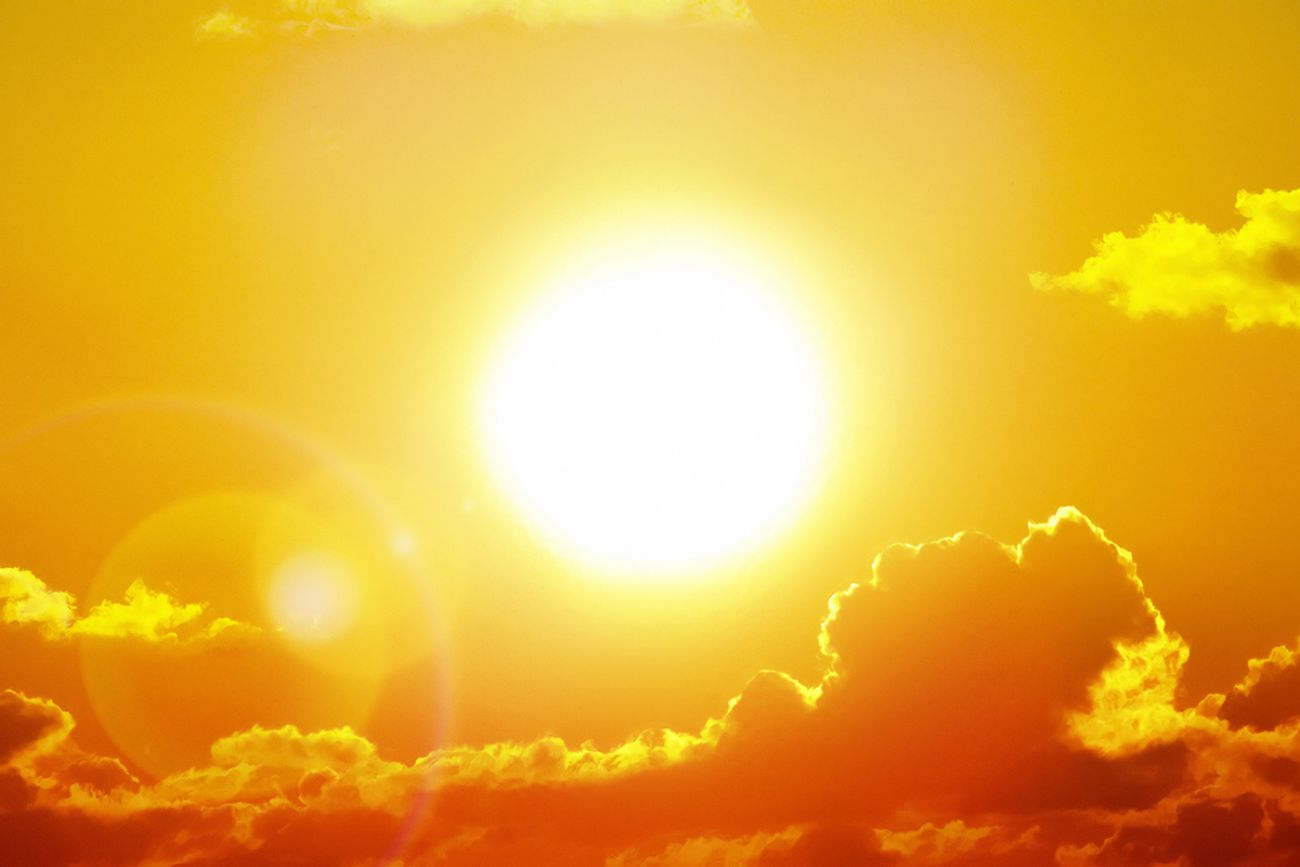Will Michigan’s grid stand up to heat wave? What to know as temps soar.

Michigan’s first summer-like heatwave arrived early and intense this year, as temperatures well into the 90s Wednesday threatened to break records across much of the state.
As cities from Detroit to Battle Creek opened cooling centers to provide relief for residents without access to home air conditioning, regional electrical grid operators warned that some Midwest states could see power shortages as millions of people crank up the A/C.
Meanwhile, climate experts urged Michiganders to prepare for more days like Wednesday as the globe warns. The expected high for Detroit is 96 degrees, one degree higher than the current record set in 1988, according to the National Weather Service. Humidity made temperatures feel closer to 100 or more.
Related:
- Cool spring takes a bite out of Michigan’s mosquito season. At least for now
- Michigan takes the plunge, becomes latest state to allow swim-up bars
- Fewer boaters and wine tasters. Will $5 gas sink Michigan summer tourism?
Here’s the breakdown of what Michigan’s heatwave means in the short and long-term, and how communities are coping.
Can Michigan’s electrical grid handle all this A/C use?
Yes, according to Michigan utilities and their government regulators.
The Michigan Public Service Commission, which regulates investor-owned utilities in the state, requires them to demonstrate they can meet peak demand four years into the future with their own power sources or contracts with outside suppliers.
That sets Michigan apart from other states on the Midwest energy grid, which face less-stringent capacity requirements, MPSC Commissioner Katherine Peretick told Bridge Michigan in May.
Peretick said Michigan is “in a good spot” going into the summer. And the state’s two largest electricity utilities, DTE and Consumers Energy, say their customers can expect a summer without power outages caused by energy shortages.
“Consumers Energy is prepared for this summer, including this week’s extreme heat,” Consumers spokesperson Josh Paciorek said Wednesday.
Jill Wilmot, spokesperson for DTE, likewise said the utility has sufficient capacity to meet demand — plus reserves.
Still, Paciorek said, power providers that aren’t required to maintain as much cushion in their energy system as Michigan’s regulated utilities could have trouble meeting demand. If that happens, the nonprofit in charge of the energy grid in Michigan and 14 other states, known as the Midcontinent Independent System Operator, could require Michigan utilities to help.
In such a case, Wilmot said, DTE would first turn to customers who have agreed to let DTE turn off their air conditioners when the power is needed elsewhere. Consumers Energy, Paciorek said, would ask large industrial customers to reduce energy use.
If that wasn’t enough, utilities could call on customers to voluntarily turn down the A/C at home – something Paciorek called very unlikely.
But while Michigan utilities may be less vulnerable than neighbors to energy shortages caused by high demand, the power lines that carry electricity into homes remain vulnerable to other extreme weather.
Last summer, parts of metro Detroit lost power repeatedly as a result of summer storms. Many Michiganders also remember the blackouts of 2003, when 50 million people in the east and Midwest lost power after trees struck a high-voltage line in Ohio.
Outages caused by extreme weather events have increased 67 percent nationally since 2000, according to a Climate Central analysis, and Michigan fared worst in the nation. Michigan utilities say they’re working to reverse those stats by ramping up tree trimming and modernizing delivery systems.
Does climate change play a role in extreme summer heat?
It’s near-impossible to tie any single weather event directly to global climate change.
But events like Wednesday’s extreme heat “have the fingerprints of climate change on them,” said Dr. Rachel Licker, a Madison, Wisc.-based climate scientist with the Union of Concerned Scientists.
Long-term trends are clear: Average temperatures are steadily rising in Michigan and around the globe. Temperatures in Michigan have risen nearly 3 degrees Fahrenheit since the beginning of the 20th century, according to the National Oceanic and Atmospheric Administration.
A 2019 study by Licker and colleagues found that the number of days with heat indexes over 90 degrees in Michigan will quadruple in the next 20 years if fossil fuel use continues apace. And the Michigan Department of Health and Human Services and University of Michigan found that heat-related death will increase sevenfold by midcentury.
Who’s most at risk?
Anyone without easy access to air conditioning or cooling shade, especially if they’re older or suffering from health problems such as respiratory or cardiovascular disease that can flare up in the heat.
Lack of A/C is an even bigger problem for people who live in urban neighborhoods without many trees to block the sun. Shade trees can cool a neighborhood by up to 20 degrees compared to treeless areas, and research shows the canopy is sparser in historically redlined neighborhoods (those historically affected by government-backed home lending discrimination, generally against Black communities).
That leaves poor and minority Michiganders to suffer the “double-whammy” of more intense heat coupled with greater exposure risk, Licker said.
Outdoor workers such as farm workers, landscapers and delivery workers are particularly at-risk.
A study last year by the Union of Concerned Scientists predicted that Michigan’s outdoor workers could lose three work days annually to extreme heat by midcentury if climate change continues at the same rate. By century’s end, the number could rise to 10.
“That’s two full weeks of work that could become completely unsafe,” Licker said. “That’s a lot of work time lost when you translate it into dollar amounts.”
How are communities preparing?
Climate experts warn extreme weather like this week’s heat wave will grow more common until humanity weans itself off fossil fuels.
Gov. Gretchen Whitmer’s administration released a plan earlier this spring to make Michigan carbon-neutral by 2050, and Michigan’s largest utilities have made similar commitments. But fossil fuel use from the past and present has already baked in at least some amount of continued warming, so some Michigan communities are ramping up efforts to help residents cope with the effects.
Efforts are underway to plant more trees in undershaded neighborhoods throughout Grand Rapids and Detroit, for example. And some cities are turning to “resiliency hubs” to give residents a place to cool off during extreme heat, charge their medical devices during power outages and seek aid during floods.
For instance, Detroit’s Eastside Community Network has turned its headquarters into a community center known as the Stoudamire Wellness Hub, where residents can come to escape heat, cold and other extremes.
Detroit’s old housing stock means many homes don’t have central air. For those that do, A/C becomes useless when heat waves follow power outages that seem to happen “every time it rains,” said Angela Brown Wilson, the Eastside Community Network’s chief operating officer.
To cope with that issue, the network plans to equip the hub with solar power backed up by battery storage so visitors can access cool space during local outages.
As of midday Wednesday, she said, the facility was mostly empty.
“But we just got word that one of the local senior buildings is without air and the elevators are not working,” Wilson said. “So we reached out to them to let them know the space is available.”
Michigan Environment Watch
Michigan Environment Watch examines how public policy, industry, and other factors interact with the state’s trove of natural resources.
- See full coverage
- Subscribe
- Share tips and questions with Bridge environment reporter Kelly House
Michigan Environment Watch is made possible by generous financial support from:
Our generous Environment Watch underwriters encourage Bridge Michigan readers to also support civic journalism by becoming Bridge members. Please consider joining today.
See what new members are saying about why they donated to Bridge Michigan:
- “In order for this information to be accurate and unbiased it must be underwritten by its readers, not by special interests.” - Larry S.
- “Not many other media sources report on the topics Bridge does.” - Susan B.
- “Your journalism is outstanding and rare these days.” - Mark S.
If you want to ensure the future of nonpartisan, nonprofit Michigan journalism, please become a member today. You, too, will be asked why you donated and maybe we'll feature your quote next time!






